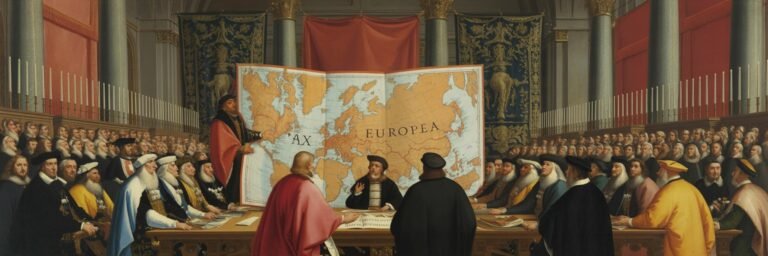INTRODUCTION
Looking back over the vast expanse of history, it becomes instantly evident that the course of human events has often been dramatically altered by cataclysmic periods of upheaval known as revolutions. Although typically violent and tumultuous, revolutions have also arguably served as the catalyst for rapid societal transformation, affecting global politics in ways that have reverberated across centuries and around the world. From the French and American revolutions to the Russian and Chinese movements of the 20th century, these uprisings have had a profound impact on the political structures, ideologies, and international relations that shape our world today.
HISTORICAL BACKGROUND
To truly grasp how revolutions have shaped global politics, it is necessary to embark on a keen dive into history. One of the most iconic revolutions in history is the French Revolution, which unfolded between 1789 and 1799. Provoked by crippling economic conditions, widespread social inequality, and the autocratic rule of Louis XVI, this revolution radically altered the political landscape of France, replacing the long-standing Bourbon monarchy with a democratic republic.
Next, we cast our gaze towards the late 18th century, to the American Revolution (1765–1783). A domino effect from enlightenment philosophies and serious disapproval of British rule triggered a tumultuous uprising, ultimately leading to the inception of the United States of America. The American Revolution also introduced the world to the power of constitutional democracies, a political structure that is now embraced by numerous countries globally.
Highlighting the 20th century, the Bolshevik-led Russian Revolution in 1917 changed the world’s political map by installing the first communist government and paving the way for the establishment of the Union of Soviet Socialist Republics. Lastly, the Chinese Revolution of 1949 brought about a communist victory against the nationalist government, reorienting global politics during the cold war era.
THEORIES AND INTERPRETATIONS
The interpretation and understanding of the effect of revolutions on global politics vary tremendously among historians and political scientists. Proponents of materialist interpretations, like Marxist historians, argue that revolutions arise from fundamental conflicts between different socio-economic classes, and consequently alter the means of production and the political structures that govern them. According to this perspective, revolutions like the Russian and Chinese movements replaced capitalist power structures with socialist alternatives, thus transforming the global political landscape.
Contrastingly, another school of thought champions the idea of revolutions acting primarily as vehicles of ideological change. Postulated by scholars like Alexis de Tocqueville, this theory suggests that revolutions are less about material conditions and more about shifting ideologies and values. Case in point, the French and American revolutions were precipitated by the enlightenment principles of individual liberty, popular sovereignty, and human rights—ideologies that permeated the consciousness of citizens on a global scale.
MYSTERIES AND CONTROVERSIES
Notwithstanding their profound impact, revolutions are often shrouded in their fair share of mysteries and controversies. Countless debates revolve around the long-debated question: Are revolutions products of spontaneous, grass-roots movements, or the efforts of a small, organized group of revolutionaries? This debate has major implications for how we understand the genesis and progression of movements such as the 1917 Russian Revolution, where some historians argue that the Bolsheviks exploited popular discontent with the provisional government to seize power.
Another contentious aspect pertains to the evaluation of the human cost of revolutions. While some analysts argue that the transformative power of revolutions far outweighs the associated human cost, others fiercely disagree, pointing to instances such as the Chinese Cultural Revolution, where millions lost their lives.
SYMBOLISM AND CULTURAL SIGNIFICANCE
Revolutions, while political at their core, also hold profound symbolism and cultural significance. Consider, for example, the Bastille Day in France, a national holiday commemorating the Storming of Bastille—a pivotal moment in the French Revolution—representing the triumph of people over monarchical tyranny. Equally symbolic is the 4th of July in America, celebrating the Declaration of Independence and the eventual victory of the colonists over British rule.
Beyond national borders, these symbols often become universal representations of the struggle for freedom and social equality. In this light, they have been instrumental in galvanizing similar movements in other parts of the world, such as the Latin American wars of independence in the 19th century and the Arab Spring in the 21st.
MODERN INVESTIGATIONS
Modern political scientists and historians are employing a range of sophisticated analytical tools and methodologies to delve deeper into the nature, causes, and effects of revolutions. Big data analytics, social network analysis, and complex system modeling are being used to unpack the underlying dynamics of revolutionary movements, predict their outcomes, and understand their impacts on global politics.
Furthermore, new archives and materials are continually being uncovered and made available, leading to fresh insights and occasionally challenging long-held assumptions about revolutions. For instance, newly unsealed documents have recently shed light on the China’s Long March, a crucial phase of the Chinese Revolution, bursting myths and shaping our understanding of the event.
LEGACY AND CONCLUSION
The legacy of revolutions in shaping global politics is complex and multifaceted. Undeniably, they played a pivotal role in the rise of democracies, popular sovereignty, and human rights as governing principles. Yet, they also have been implicated in the advent of authoritarian regimes, international armed conflict, and human rights abuses.
Nonetheless, the lasting effect of revolutions stretch far beyond their immediate outcomes. They showed the world that no authority can remain unchallenged forever, and that people, united and determined, possess the power to alter the course of their nation and, by extension, the world itself. Today, the waves ignited by these revolutions continue to influence and shape political realities— from the formulation of political ideologies, alliances, and enmities among nations, to the fight for human rights and social justice.
In conclusion, the investigation of how revolutions shaped global politics is an exploration marked by bitter conflicts, inspiring heroism, and intense ideological debates. This inquiry allows us not only to understand our past better but also provides critical insights as we navigate the political challenges and possibilities of our own era. Despite their complexities and controversies, these compelling chapters of human history remain a testament to the enduring human spirit fighting for a better world.






